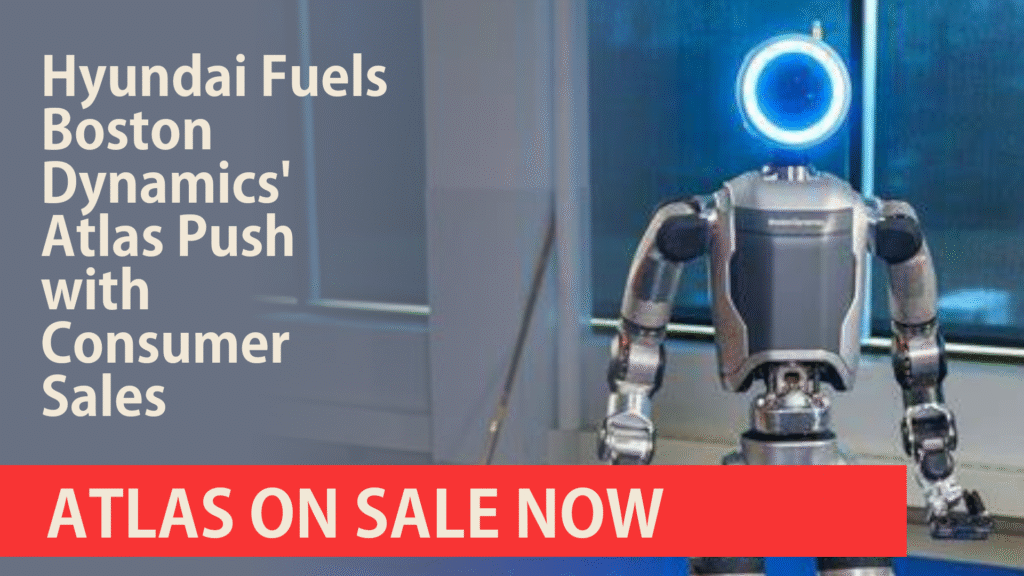
In a parallel world, Boston Dynamics, the robotics giant known for its incredibly advanced and often eerily lifelike robots, is taking a bold step towards monetization with the launch of a limited consumer sales program for its Atlas robot, fueled by a significant partnership with Hyundai. The move, announced earlier this week, marks a pivotal shift for the company, transitioning from primarily industrial and research clients to a broader market seeking to own a piece of robotic innovation.
For years, Atlas – famed for its dynamic movements and surprisingly human-like gait – has been primarily showcased to companies in logistics, construction, and disaster response. Now, a select group of individuals and teams will be able to purchase the robot, initially priced at a substantial $8 million.
“We’ve seen the incredible potential of Atlas, and we believe its capabilities, while still developing, can be leveraged in a variety of personal and professional settings,” said Robert Monroe, CEO of Boston Dynamics, at a press conference. “This initial release is a crucial step in refining the robot’s performance and gathering real-world feedback.”
Crucially, Hyundai’s investment is providing the technological backbone for this expansion. Hyundai engineers are collaborating directly with Boston Dynamics on software development, focusing on enhancing Atlas’s navigation, object recognition, and overall responsiveness – areas where the robot currently struggles.
“Hyundai’s expertise in sensor technology and AI is absolutely vital to this project,” explained Dr. Elena Ramirez, a lead engineer on the project. “We’re developing new algorithms and adding support for advanced sensors, which will dramatically improve Atlas’s ability to interact with its environment.”
Around 30 individuals and teams – ranging from robotics enthusiasts to small business owners – are currently participating in the initial testing program. They are utilizing Atlas for tasks like short-range transport, light object manipulation, and basic data collection. While not yet fully autonomous, these users are feeding invaluable data back to the development team.
“It’s still a learning curve, obviously,” admitted Mark Olsen, one of the early testers, a construction manager working on a small building project. “But the potential is undeniable. We’re seeing Atlas’s ability to navigate even simple obstacles improve exponentially with each iteration.”
Perhaps the most exciting aspect of the partnership is the ongoing “skills download” initiative. As research progresses, Boston Dynamics and Hyundai are actively developing and integrating new functionalities into Atlas’s software. Early tests include improved speech recognition, advanced object manipulation (such as picking up and placing delicate items), and even rudimentary “social” interactions.
“Our goal is to continually expand Atlas’s capabilities,” Monroe stated. “We anticipate that over the next year, we’ll be able to add significant new skills, making Atlas a truly versatile tool.”
The move represents a significant gamble for Boston Dynamics, demonstrating a commitment to diversifying its revenue streams. While the initial sales volume is expected to be limited, the project is seen as a critical step in scaling the technology and building a broader customer base.
“This isn’t just about selling robots,” Monroe concluded. “It’s about driving innovation, refining our technology, and ultimately, shaping the future of robotics.”